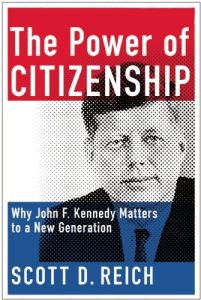Join getAbstract to access the summary!

Join getAbstract to access the summary!
Scott D. Reich
The Power of Citizenship
Why John F. Kennedy Matters to a New Generation
BenBella, 2013
What's inside?
The legacy of President John F. Kennedy endures because he encouraged Americans to act.
Recommendation
A half-century after his death, John F. Kennedy is still fascinating, perhaps due to his youth, glamour, and too-early, tragic death, as well as the way he governed. Author Scott D. Reich believes that JFK’s lasting legacy is his concept of citizenship. Reich explains how Kennedy’s devotion to the idea of a connected society and of Americans’ responsibilities toward one another influenced his actions in a broad range of public-policy decisions – in many areas, such as foreign affairs, space exploration, civil rights and his promotion of the arts. Reich urges today’s “new generation of Americans” to pick up the torch. He demonstrates that JFK’s exhortations are timeless and offers thoughtful suggestions for incorporating citizenship into your daily life. getAbstract recommends his advice to any American seeking to make his or her country better and to citizens worldwide who want to lift their nations by stoking a new fire to light the world.
Summary
About the Author
Scott D. Reich is a lawyer and historian who is active in pro bono legal assistance, support of the arts and other causes.


















Comment on this summary